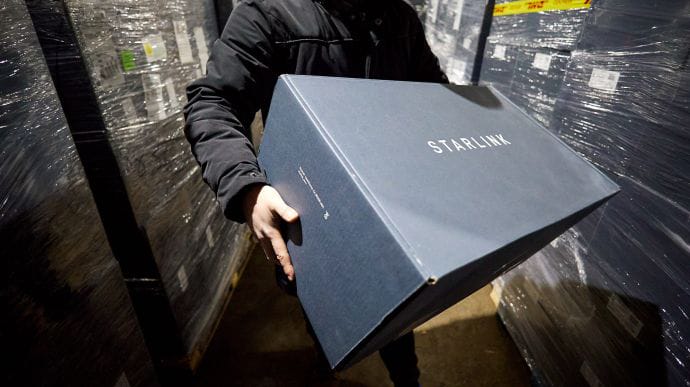Canal+ IPO offers hope for troubled London Stock Exchange
French media giant Canal+ will list on the London Stock Exchange this morning in an early Christmas present for a bourse battered by a string of exits this year.


French media giant Canal+ will list on the London Stock Exchange this morning in an early Christmas present for a bourse battered by a string of exits this year.
It is the product of a long-awaited breakup of Paris-based Vivendi, which acquired Canal+ in 2000.
The split was engineered by billionaire Vincent Bolloré, who controls the conglomerate with a 29 per cent stake. It will also see advertising agency Havas and publisher Louis Hachette Group list Amsterdam and Paris respectively on Monday. What is left of Vivendi will remain listed in Paris.
French activist investors Ciam and Phitrust have staunchly opposed the breakup, raising concerns over valuations and arguing the Bollorés are trying to take more control over Vivendi without having to make a formal takeover offer.
But the plan won the backing of voting shareholders last week and is now set to deliver London’s only £1bn-plus IPO of the year. Canal+ is expected to be the capital’s biggest listing since GSK spun off Haleon in 2022.
In November, JP Morgan analysts estimated Canal+ had an equity value of around €6bn (£5bn). The firm is reportedly seeking a higher valuation of up to €8bn (£6.6bn) in its market debut.
Tom Snowball, head of UK equity capital markets at BNP Paribas and an adviser to Canal+ on the IPO, told City AM that it would be “a positive for the general narrative and sentiment” after a lacklustre year for the capital’s flagship bourse.
Richard Hunter, head of markets at Interactive Investor, added that the listing “represents a welcome relief for the London market”.
Canal+ is set to easily dwarf every other London IPO of 2024 combined. The capital has attracted just 18 new listings this year, with the most notable being computer firm Raspberry Pi and sports health brand Applied Nutrition – which were valued at a modest £542m and £350m respectively.
Still, Canal+ will not be included in the FTSE indices. It will remain domiciled in France.
The government has hailed the IPO as an endorsement of its plans to boost capital markets, with Chancellor Rachel Reeves hosting the firm’s chief executive Maxime Saada and finance head Amandine Ferré in Downing Street on Friday.
“Their decision is a vote of confidence in the UK’s capital markets, the stability we are delivering and our plan for change,” Reeves said.
Canal+ will be hoping to follow in the footsteps of Universal Music Group, which Vivendi listed in Amsterdam in 2021. It currently has a market capitalisation of €44.8bn (£37.2bn), roughly five times bigger than Vivendi’s €8.8bn (£7.3bn).
Vivendi’s breakup was spurred by what it has dubbed a “conglomerate discount”, where investors underpriced the sprawling group as a collective.
Canal+ was launched as a subscription TV channel in France 40 years ago but has since grown into a vast media group that helps finance most films produced in the country.
It owns Studiocanal, a producer of the Paddington film series, and has further grown its international reach by making investments in overseas streaming companies and agreeing to take over South African pay-TV giant Multichoice earlier this year.
Vivendi said it preferred London for Canal+ thanks to the market’s appeal among international investors. After floating in London, it could take a secondary listing in Johannesburg, where Multichoice is based.
Snowball said the IPO “continues the long-seen theme of offshore and international businesses seeking to list in London”.
Glimmer of hope
London is set to record one of its worst ever years for IPO activity, although bankers are eyeing a recovery in 2025 as several firms ready £1bn-plus floats.
Fast-fashion giant Shein is preparing a London listing which could be the capital’s biggest ever and come as soon as next year. It had previously filed paperwork for a US float, but allegations of forced labour in its supply chain and ties to China triggered a backlash from senators.
Lloyd’s of London insurer Canopius and consumer credit firm Newday are also understood to be considering IPOs in the capital next year. Both private equity owned, they could be valued at £3bn and £1.5bn respectively.
“We would hope 2025 does indeed give a more supportive market backdrop for new listings,” Snowball said.
“There has been a recent knock to the confidence of both businesses and consumers, and we need to move beyond this and more generally see a stock market recovery – especially of the FTSE 250.”
But Hunter said the listings set for next year “would represent a trickle rather than a flood” and that “the general direction of travel has been away from the UK market, and the FTSE 100 in particular more recently”.
More than £100bn worth of listed companies have made preparations to leave London’s stock market this year, either by agreeing takeover deals or opting to delist.
Last week, FTSE 100 equipment rental firm Ashtead became the latest big name to snub the capital for better returns overseas by confirming plans to move its main listing to the US.
“There are also rumours that other UK household names could be considering a switch to the deeper pools of liquidity and the higher valuations which US markets provide, which would pile additional pressure on a dwindling index,” Hunter added.
Snowball said: “I think listing in the first half of 2025 will be selective, but we expect a more fulsome pipeline later in the year.”
London’s exodus has triggered a scramble by the government to overhaul listing rules and reform the domestic pensions system to shore up capital markets.
“There have been signs that the UK is beginning to position itself as a more attractive investment destination,” Hunter said. “But given the strength of the opposing tide, it is rather too early to call a full-blown recovery.”



